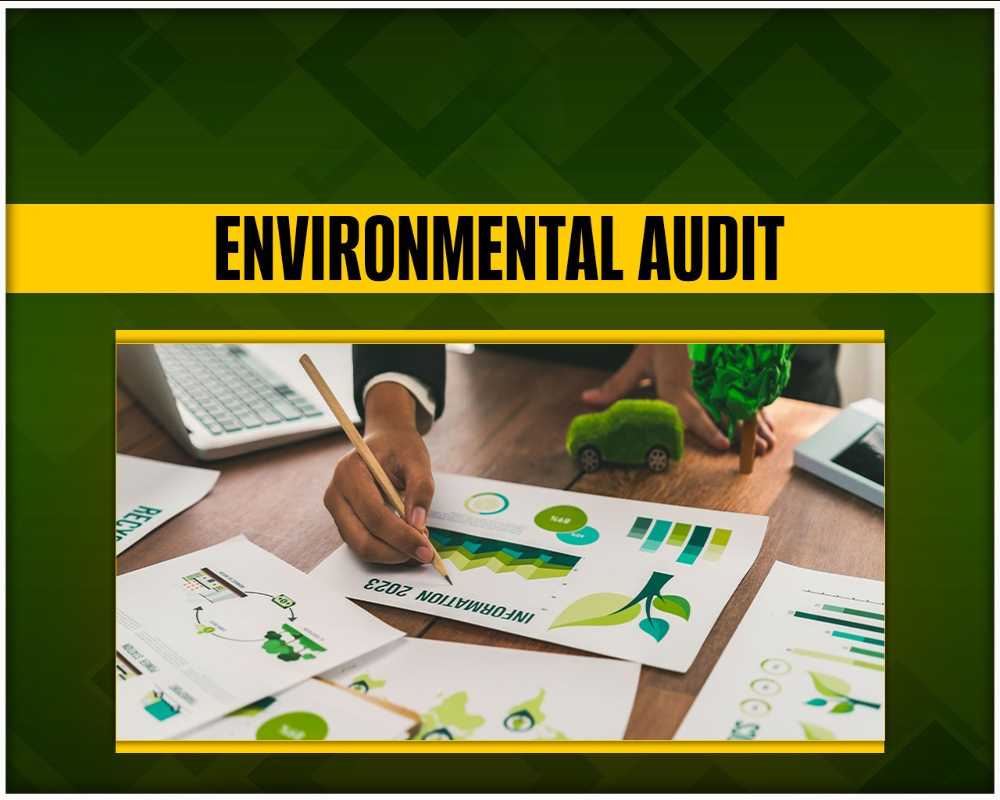Introduction
Environmental audits in industries are systematic evaluations of how well a company or facility is complying with environmental laws, regulations, standards, and internal sustainability goals. These audits play a crucial role in assessing the environmental impact of industrial activities and in identifying opportunities for improvement in resource efficiency, pollution control, and legal compliance. By critically analyzing operational practices, waste management, emissions, and the use of natural resources, environmental audits help industries align with environmental protection norms and demonstrate accountability in their operations.
Environmental audits are not only tools for regulatory compliance but also integral components of risk management and corporate environmental responsibility. With increasing scrutiny from regulators, investors, and communities, industries are expected to proactively monitor and manage their environmental footprint, and audits provide a structured approach to achieve this.
Ensuring Legal Compliance
One of the primary purposes of an environmental audit is to verify whether the industry is complying with relevant environmental laws, permits, and standards. This includes compliance with pollution control norms for air and water, hazardous waste handling rules, noise level regulations, and environmental clearance conditions. Audits help identify any deviations or non-compliance, allowing industries to take corrective actions before facing legal penalties or operational shutdowns.
Regular audits also ensure that pollution control equipment such as effluent treatment plants, scrubbers, and dust filters are functioning effectively and that emissions and discharges are within permissible limits. By reviewing documentation, licenses, and monitoring reports, auditors provide a transparent record of environmental performance.
Evaluating Environmental Management Systems
Environmental audits assess the effectiveness of the company’s Environmental Management System (EMS), including its policies, practices, and organizational structure related to environmental protection. The audit process checks whether responsibilities are clearly defined, training programs are in place, emergency response plans are updated, and environmental objectives are being met.
An efficient EMS leads to better integration of environmental considerations into day-to-day operations and supports continuous improvement in environmental performance. Audits also highlight gaps in implementation and help update standard operating procedures based on current legal and technological standards.
Identifying Risks and Preventing Environmental Incidents
Audits are instrumental in identifying operational risks that could result in environmental incidents such as chemical spills, emissions of hazardous gases, wastewater overflows, or fire hazards involving toxic substances. By evaluating the industry’s preparedness, equipment condition, and response plans, audits reduce the likelihood of accidents and ensure that early warning systems and emergency measures are in place.
Industries with regular audit programs are better equipped to prevent environmental harm and minimize liabilities related to accidental releases or damage to nearby ecosystems and communities.
Promoting Resource Efficiency and Cost Savings
Environmental audits also assess how efficiently an industry uses resources like water, energy, raw materials, and land. They can uncover areas where excessive resource consumption, material losses, or inefficient processes are leading to waste and higher operating costs.
By suggesting process improvements, energy-saving technologies, water recycling systems, and waste reduction strategies, audits contribute to sustainability and economic efficiency. In many cases, implementing audit recommendations not only reduces environmental impact but also results in significant cost savings and improved productivity.
Supporting Sustainability Goals and Reporting
Environmental audits serve as the backbone of sustainability reporting by providing verified data and insights into an industry’s environmental footprint. Many companies include audit results in their sustainability reports, CSR disclosures, and environmental, social, and governance (ESG) metrics.
In global markets, where environmental performance influences investor decisions and brand reputation, audits help industries demonstrate transparency, accountability, and commitment to sustainable development. They also support compliance with international standards such as ISO 14001 for Environmental Management Systems.
Facilitating Regulatory and Public Confidence
Environmental audits build confidence among regulators, stakeholders, and local communities by showing that the industry is taking its environmental responsibilities seriously. When audit findings are acted upon and communicated transparently, it fosters trust, reduces conflict, and strengthens relationships with oversight bodies and residents in the vicinity.
In some jurisdictions, periodic environmental audits are mandatory, and submission of audit reports to pollution control boards is a legal requirement. In others, audits are part of voluntary corporate governance but still carry considerable weight in decision-making and public perception.
Conclusion
Environmental audits are vital tools for industrial sectors to monitor, evaluate, and enhance their environmental performance. By ensuring compliance, identifying risks, promoting efficiency, and supporting sustainability goals, audits help industries operate responsibly and transparently. In a world facing increasing environmental challenges and regulatory expectations, environmental audits are not just a compliance exercise—they are strategic instruments that drive continuous improvement, innovation, and long-term value creation for industries and the communities around them.
Hashtags
#EnvironmentalAudits #Sustainability #EcoFriendly #GreenBusiness #CorporateResponsibility #EnvironmentalImpact #SustainablePractices #IndustryStandards #Compliance #EcoAudit #EnvironmentalManagement #ResourceEfficiency #WasteReduction #CarbonFootprint #CleanTechnology #EnvironmentalRegulations #SustainableDevelopment #BusinessEthics #EcoInnovation #EnvironmentalAwareness


